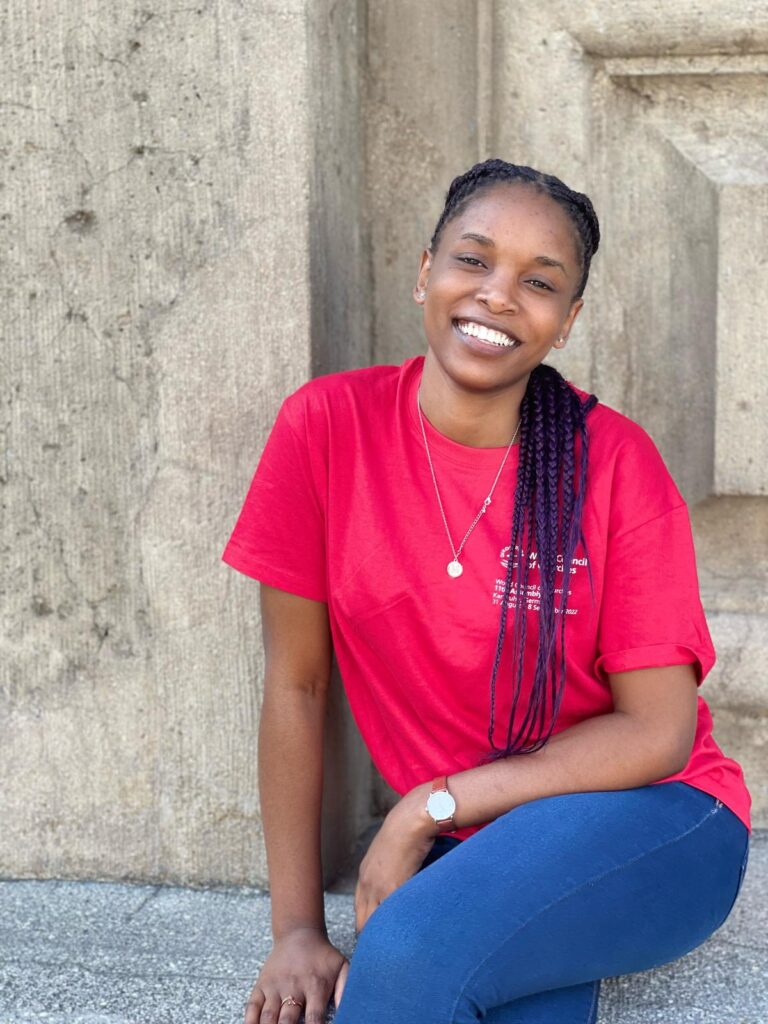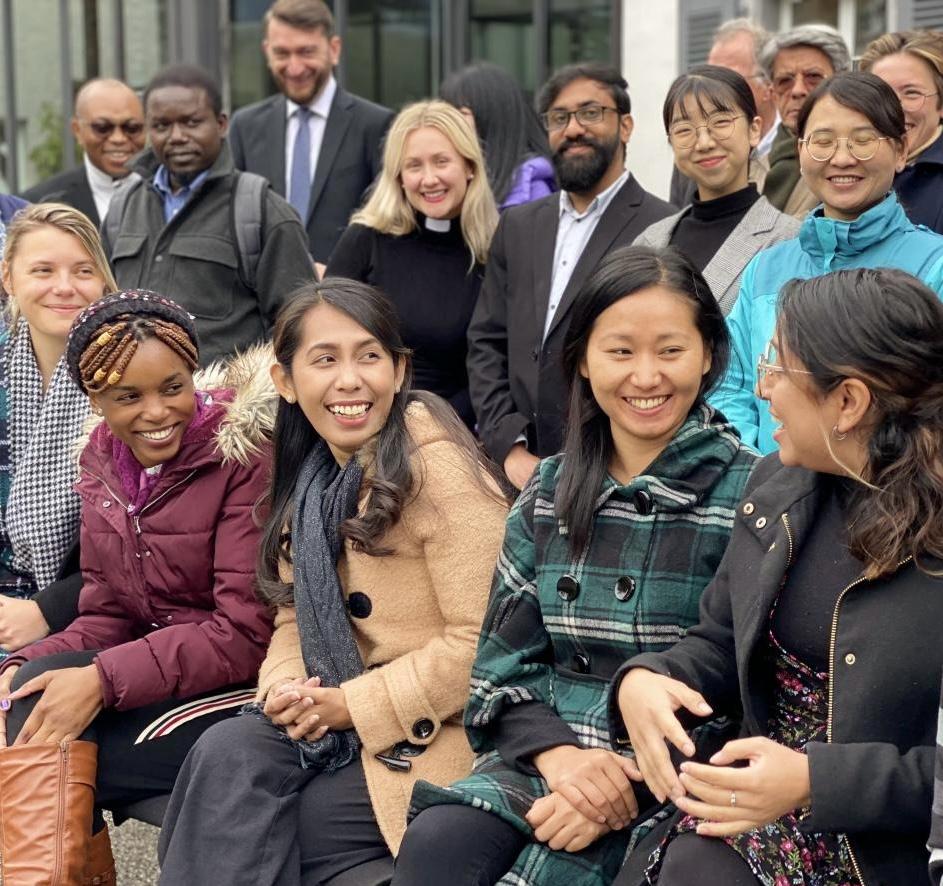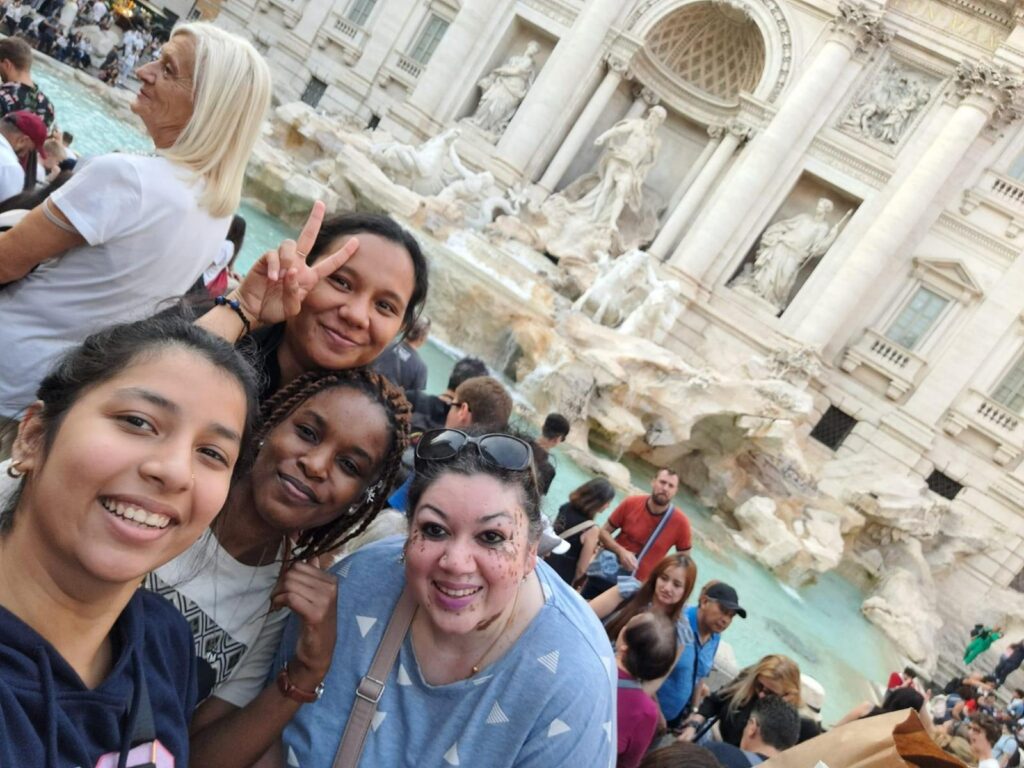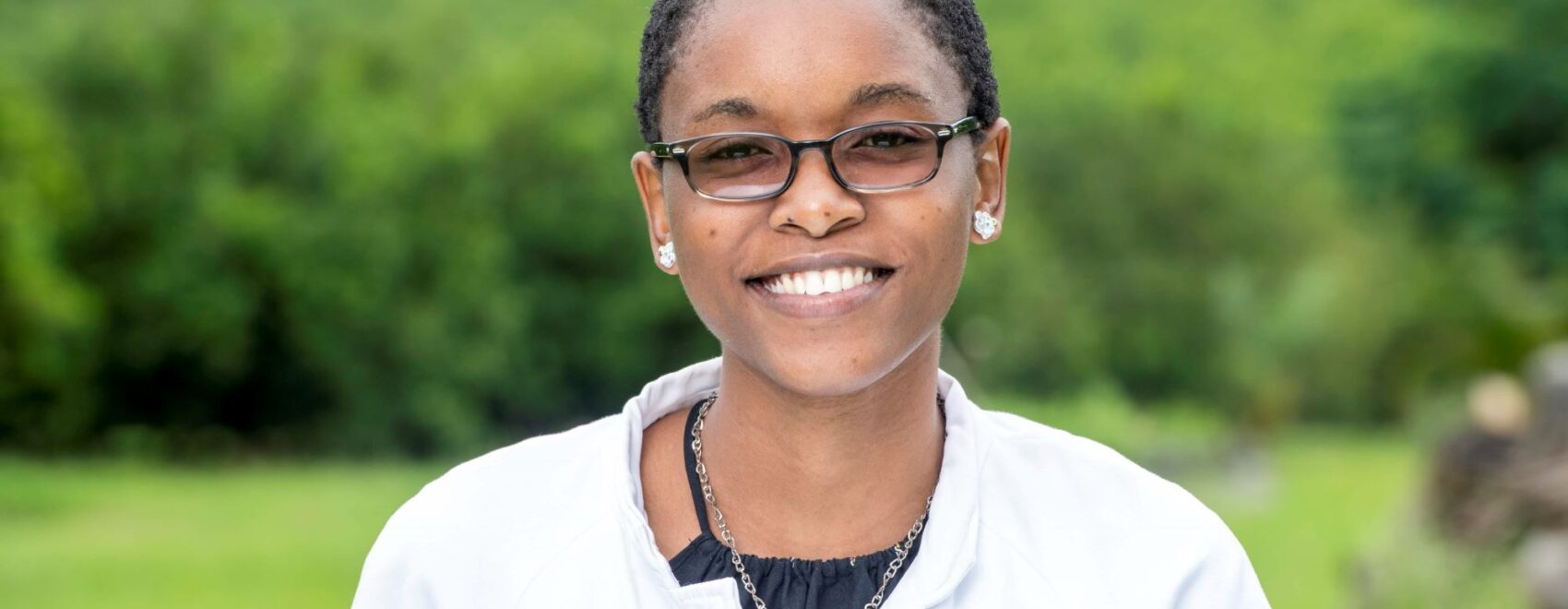African Christian College gave birth to a passion for engaging in faith-based programs, mission, justice, and peace work.
At African Christian College, I established relationships with strangers who became my best friends and staff members who became my advisers. The college prepared me with multicultural skills that helped me survive the intercultural communities I landed in. I recall the time of my studies as a breakthrough adventure because I didn’t have a full understanding of my purpose then, but the entire experience became a turning point in my life.

My vocation revolves around raising awareness of the existing relationship between socio-economic issues and theology. I bring together various fields of research, study, and advocacy to speak to these matters holistically from local to global levels … because every voice matters. Responsible stewardship is a priority as we strive to fulfill our calling and roles in society as Christians, addressing ethical and social concerns of how we can create the abundant life that Christ promised for all. How to address the disruptions and imbalances is key in this field, and mostly considers diversity as a strength, not a weapon against the other.
Giving back to my community, I take part in workshops under the Zimbabwe Council of Churches, representing young people. I will try to brief my experiences and personal light-bulb moments as they matter to them.
After graduation, I stayed home for some time doing part-time jobs and trying to connect the dots. It wasn’t easy.
Then I had an opportunity provided by some mentors to engage with a variety of other Christians. It was a point of discovery where everything made sense through unity, love, understanding, and respect. During the excursion, I was able to grasp various perspectives. I had first-hand, deep conversations with people from different religious backgrounds, some I had just heard or read about. It was fulfilling to listen to individuals share about their culture and tradition. I visited worship services, sacred sites, and historical places like Rome, exploring Christianity. This widened my views and attitude toward religious diversity.
If you have been to African Christian College, you understand that my journey as a student, exposure to diversity, and theological foundations was an on-ramp and preview of my destination.
Modestar Mekeresi, 2019 Graduate
An important aspect I latched on to is that unity should not be confused with uniformity. We can agree to disagree without hindering progress with regard to the increasingly pluralistic and secular world. This approach nurtures interdenominational awareness and cooperation within the Christian Movement.
Further in my career, I had an opportunity to work with the World Communion of Reformed Churches – also made up of diverse staff. In every part of my work, I was in touch with influential ecumenical leaders who inspired me in many ways. We looked back on global issues with huge negative, global impacts that bring up many survival and security questions – issues like the past and present wounds of poverty, the COVID-19 Pandemic, the Ukrainian war, and the Korean Peace Appeal.

We live in a world where aggression and violence are becoming normal at the expense of peace. A world where profits are placed over people’s needs and where the earth’s resources are unequally distributed. Taking part in such important conversations gave me an overview of how such crises can raise theological questions . . . like how victims transition from such traumatic events or how we learn to forgive or let go of uncertainties and fears in different circumstances. I could hear different parties reaching out, responding remarkably, and volunteering to offer help out of a mutual, global concern.
A phenomenon I always look back on with nostalgia in this pilgrimage was being able to connect with the countless young people with whom I shared amazing moments. Most of them are dedicated to working for their churches and aspire to become Christian leaders, despite their gender or living with a disability. Listening to their stories and passion, I realized how much hope there is in young people, and given a chance, they must be equipped for the future.
As a result of this exposure, my worldview changed. I began to understand how churches need to respond and engage more in social matters. Christian societies are not separated from day-to-day struggles but are part of them and have the mandate to be the salt and light of the earth. Churches also have to go through the process of learning, unlearning, and re-learning some traditions we hold and carry a solution-based focus toward diversity. This transition doesn’t imply changing values, principles, or the ultimate goal of God’s mission. It is more about flexibility and proactiveness in advancing our approach, global awareness, and what impacts the Church. There’s a need for a deeper understanding of the Christian-based sacred text (Bible) for moral discernment and active response to intertwined church, political, economic, environmental, and social predicaments.

All these experiences, solidarity expressions, and discoveries revealed to me will remain my motivation in this voyage. And having my hands-on work of this nature inspires me to want to do more and continue in this lane because I find meaning in it. If you have been to African Christian College, you understand that my journey as a student, exposure to diversity, and theological foundations was an on-ramp and preview of my destination.
Thank you, African Christian College, for equipping me for excellent service in the Kingdom of God.

